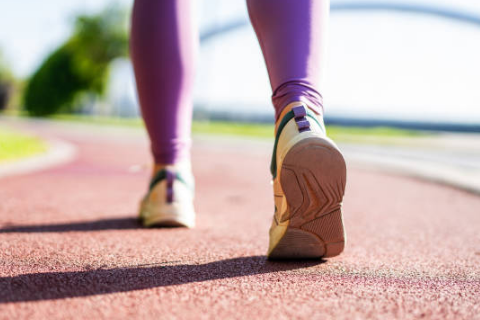Walking regularly offers great benefits for both your physical and mental health. It can improve sleep quality, boost heart health, lift your mood, and even help you live longer. It also lowers the risk of heart disease and helps reduce blood pressure. Some research suggests that the timing of your walk—whether before or after eating—can influence its impact on your health.
Studies have found that walking on an empty stomach may help burn fat and boost your metabolism. On the other hand, walking shortly after a meal may be more effective for weight loss, digestion, and blood sugar control.
Is It Better to Walk Before or After a Meal?
Whether you should walk before or after eating depends on your goals and personal preferences. Both approaches have health benefits, including supporting weight loss and managing blood sugar.

Walking before a meal may help your body burn stored fat and support weight loss.
Walking after a meal may help you lose even more weight, regulate blood sugar levels, and aid digestion.
Ultimately, it’s a good idea to speak with a healthcare provider to determine what works best for your needs. Your current health conditions and specific goals can help determine whether before or after meals is better for you.
Benefits of Walking
Walking in the early morning on an empty stomach—or a few hours after your last meal—can kickstart your metabolism and help your body burn fat instead of recently consumed calories. It’s also a solid strategy for weight loss.
In fact, one study found that people who exercised on an empty stomach burned about 70% more fat than those who exercised two hours after eating.
Other benefits of walking before a meal include:
-
Boosting your energy levels for the day
-
Increasing your metabolism
-
Improving blood circulation
-
Lowering blood lipid levels
-
Managing blood sugar
Walking After a Meal Has Its Own Perks Too
It can support digestion, help regulate blood sugar, and aid in weight loss.
Improved digestion:
Research shows that walking after eating can speed up digestion and reduce bloating. For people who often experience gas, bloating, or burping, walking for 10–15 minutes after meals has been shown to ease those symptoms.
Better blood sugar control:
One of the biggest advantages of walking after eating is how it helps with blood sugar. Whether you’re looking to prevent diabetes or manage an existing diagnosis, walking after meals can help your body use glucose more efficiently and reduce blood sugar spikes. Even just 2 to 5 minutes of walking can make a difference.
Weight loss support:
Walking consistently, no matter when, can contribute to weight loss. However, one study found that brisk walking for 30 minutes immediately after eating was more effective for shedding pounds than walking an hour later. Another study showed similar results.

How Long Should You Walk Before or After Eating?
The length of your walk depends on your goals.
If you plan to walk before eating, it’s best to wait 3–4 hours after your last meal or go for a walk after waking up from an overnight fast. This encourages your body to burn stored fat for energy rather than calories from your most recent meal.
If you plan to walk after a meal, try to start as soon as possible—especially if your goal is to regulate blood sugar or support weight loss. Blood sugar tends to peak 30–60 minutes after eating, so walking before that peak can help blunt the spike.
In fact, walking briskly for 30 minutes right after lunch or dinner has been shown to be more effective for weight loss than waiting an hour or more.
Tips for Walking to Aid Digestion
Walking at any time supports overall health, including better sleep, heart function, and mood. But if your goal is to aid digestion, keep these tips in mind:
-
Timing matters: Walk soon after eating if you’re aiming to regulate or lower blood sugar.
-
Think about your diet: If you’re walking before eating, be mindful of your post-workout food choices. Some people may treat the walk as a reason to reward themselves, leading to less healthy eating afterward. You don’t have to eat immediately after walking—research shows you have up to four hours to replenish energy stores without negative effects.
-
Do what you can: If 30 minutes feels like too much after a meal, especially when you’re just starting out, even 2–5 minutes can help.
-
Avoid high-intensity workouts right after eating: Gentle walking is better for digestion than intense exercise, which can stress the gut. This is especially true for people with IBS (irritable bowel syndrome) or GERD (acid reflux), as high-intensity exercise may worsen symptoms.
-
Watch your step count: If your goal is diabetes prevention or managing type 2 diabetes, aim for 10,000 steps a day if possible. While before/after-meal walks help manage blood sugar, your total daily movement is key for long-term benefits.

